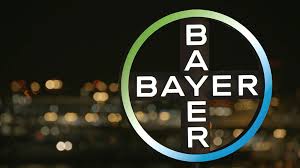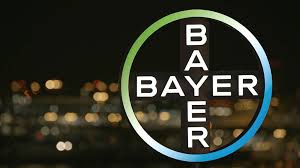
German drugmaker Bayer feels that its consumer health brands most often do not appeal enough to consumers on digital platforms like Amazon and other online platforms and hence the company has not been able to realize as much of revenues as it would have liked from the segment. And to reverse this trend, the company has roped in the head of Nestle’s baby food business to help the company to raise revenue from the segment.
Bayer said in a statement that Erica Mann has been replaced by Nestle’s Heiko Schipper, 48, appointed as a board member and tasked with the ordeal of running the Consumer Health division of the company.
In recent years in the U.S., consumers have been turning to online stores and moving away from the established brick and mortar drugstores and this trend had caught the company off guard and it was unable to initially respond to the change in customer tastes. The same has been the case with another major over-the-counter (OTC) drug rival – GlaxoSmithKline.
It is anticipated that Amazon would be moving into the market for prescription drugs and it is also expected that the e-commerce giant would also make use of its massive purchasing power to squeeze prices and analysts view the change in customer taste of shopping for consumer health products is just a precursor of what companies in the pharma segment can expect in the near future once Amazon makes that move.
It is perceived that Amazon’s potential entry into the prescription drug sales segment has been preempted by many companies and have resulted in acquisitions and enhanced services. For example, the push by CVS Health to ensure next-day delivery and the purchase of a CVS Health Corp unit which is in the business of providing services to pharma firms by drug distributor McKesson, are instances of that shake up in the segment.
They expect Amazon to “cause long-term margin compression through the drug supply chain”, said Bernstein analysts in a note earlier this month.
It has bene noticed that Bayer’s premium brands such like sunscreen Coppertone and allergy remedy Claritin have fallen behind on the question of price as consumers are now able to easily compare prices of similar drugs on the internet when it comes to the question of non-prescription treatments.
“The U.S. is the market that is facing tremendous structural changes,” outgoing executive Erica Mann said in an analyst call discussing third-quarter results this month.
“We also noted in the U.S. market significant channel shifts, such as an acceleration towards e-commerce and, in particular, I can call it the Amazon effect... Consumer behaviors are shifting and they’re really moving towards e-commerce channels as well as searching for value.”
The OTC businesses are being prepared to be sold by both Pfizer and Germany’s Merck KGaA.
After having adjusted for currency fluctuations and portfolio changes, there was a fall of 2.9 percent in the third-quarter sales third-quarter sales for Bayer’s OTC drugs unit which reported a 7.4 percent fall in the same quarter. The unit was however boosted by acquisitions worth $14 billion of brands from U.S. rival Merck & Co in 2014.
The online medium has been wielding enhanced purchasing power and doing a squeeze in the procurement prices and which has bene threat to the traditional sale channels and as a result the U.S. drugstore chains have merged.
(Source:www.reuters.com)
Bayer said in a statement that Erica Mann has been replaced by Nestle’s Heiko Schipper, 48, appointed as a board member and tasked with the ordeal of running the Consumer Health division of the company.
In recent years in the U.S., consumers have been turning to online stores and moving away from the established brick and mortar drugstores and this trend had caught the company off guard and it was unable to initially respond to the change in customer tastes. The same has been the case with another major over-the-counter (OTC) drug rival – GlaxoSmithKline.
It is anticipated that Amazon would be moving into the market for prescription drugs and it is also expected that the e-commerce giant would also make use of its massive purchasing power to squeeze prices and analysts view the change in customer taste of shopping for consumer health products is just a precursor of what companies in the pharma segment can expect in the near future once Amazon makes that move.
It is perceived that Amazon’s potential entry into the prescription drug sales segment has been preempted by many companies and have resulted in acquisitions and enhanced services. For example, the push by CVS Health to ensure next-day delivery and the purchase of a CVS Health Corp unit which is in the business of providing services to pharma firms by drug distributor McKesson, are instances of that shake up in the segment.
They expect Amazon to “cause long-term margin compression through the drug supply chain”, said Bernstein analysts in a note earlier this month.
It has bene noticed that Bayer’s premium brands such like sunscreen Coppertone and allergy remedy Claritin have fallen behind on the question of price as consumers are now able to easily compare prices of similar drugs on the internet when it comes to the question of non-prescription treatments.
“The U.S. is the market that is facing tremendous structural changes,” outgoing executive Erica Mann said in an analyst call discussing third-quarter results this month.
“We also noted in the U.S. market significant channel shifts, such as an acceleration towards e-commerce and, in particular, I can call it the Amazon effect... Consumer behaviors are shifting and they’re really moving towards e-commerce channels as well as searching for value.”
The OTC businesses are being prepared to be sold by both Pfizer and Germany’s Merck KGaA.
After having adjusted for currency fluctuations and portfolio changes, there was a fall of 2.9 percent in the third-quarter sales third-quarter sales for Bayer’s OTC drugs unit which reported a 7.4 percent fall in the same quarter. The unit was however boosted by acquisitions worth $14 billion of brands from U.S. rival Merck & Co in 2014.
The online medium has been wielding enhanced purchasing power and doing a squeeze in the procurement prices and which has bene threat to the traditional sale channels and as a result the U.S. drugstore chains have merged.
(Source:www.reuters.com)














